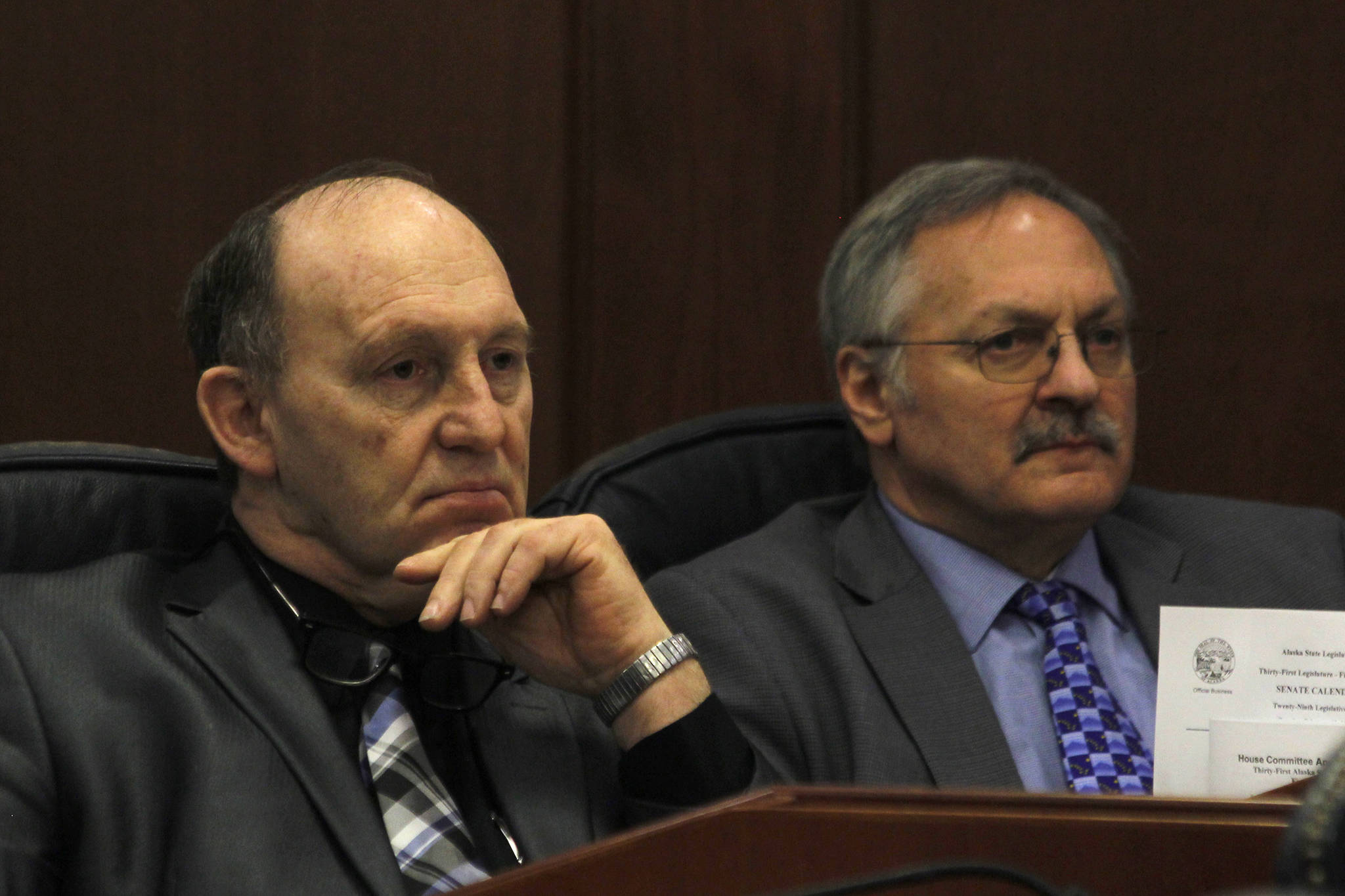The Alaska House of Representatives on Thursday passed their version of the state’s budget for fiscal year 2020. The House budget includes a reduction in spending of about $200 million, which is significantly less than the spending cuts of $1.6 billion proposed by Governor Dunleavy.
The Clarion spoke with Rep. Gary Knopp, R-Soldotna, after the vote to discuss how the House budget differs from the governor’s as well as the priority of the House now that the budget has moved to the Senate for discussion.
“From day one my priority was getting a budget passed and into the Senate, and today that’s what we did,” Knopp said on Thursday. Knopp said he was happy with the $200 million in cuts, and said that it is a reasonable reduction in spending that maintains important services and leaves room for a respectable payout of the Permanent Fund Dividend. Allocations of funds for the PFD were notably absent from the House’s proposed budget, and Knopp said that moving forward the House finance committee would be looking at the bills the governor has proposed in regards to the PFD.
As far as what will happen to the budget once it is in the Senate, Knopp said he only expects minor changes. “We both started from the same place,” said Knopp, referring to the fact that the Senate and the House based their discussions around the FY20 Adjusted Base Budget rather than the governor’s proposed budget. The FY20 Adjusted Base Budget is the budget for the 2019 fiscal year with adjustments made for one-time items, position counts, funding transfers, line item transfers and increases to salaries and benefits. The Senate and the House traditionally use this figure each year as a base, according to the legislative finance division. The governor’s budget took the approach of starting with funding essential services and added funds until the state’s spending matched its revenue.
Knopp noted that the House passed their budget just two days later than they did last year, even though it took them 31 days to organize and a elect a Speaker at the beginning of the session. Knopp said that, pending any major changes on the Senate side, he doesn’t anticipate going into an extended legislative session. He also didn’t completely rule out the possibility of an extended session. “Anything could happen,” said Knopp.
When asked how the budget discussions went in the House, Knopp said that most of the contention centered around the level of cuts for any given program. For example, the Ocean Rangers program has been defunded in the House budget and there is a $10 million decrease to funds for the University of Alaska, and Knopp said that these cuts made some people upset.
On the governor’s plan to issue a full PFD, Knopp said he does not support this and pushed back on the definition of “full.” Using the formula that has been used in the past few years to determine the PFD amount, Knopp said that a full PFD is possible, just not the kind that the governor has proposed.
The House finance committee traveled around the state to hear the perspectives of Alaskan’s on the budget, and Knopp said that his takeaway was that many Alaskans care deeply about the PFD and education. He also said that people were concerned about how many aspects of the governor’s budget would end up shifting the burden of costs to municipalities.
Going forward, Knopp said that the House will now start looking at legislation related to the PFD and criminal justice. When asked if he thinks that SB91 — a controversial crime bill passed by the Legislature last year — would be repealed, Knopp said it is likely that it will be repealed and replaced in some form. Knopp noted that Rep. Matt Claman, D-Anchorage, who is the chair of the judiciary committee and a primary author of the original SB91, is open to the idea of improving the legislation.

